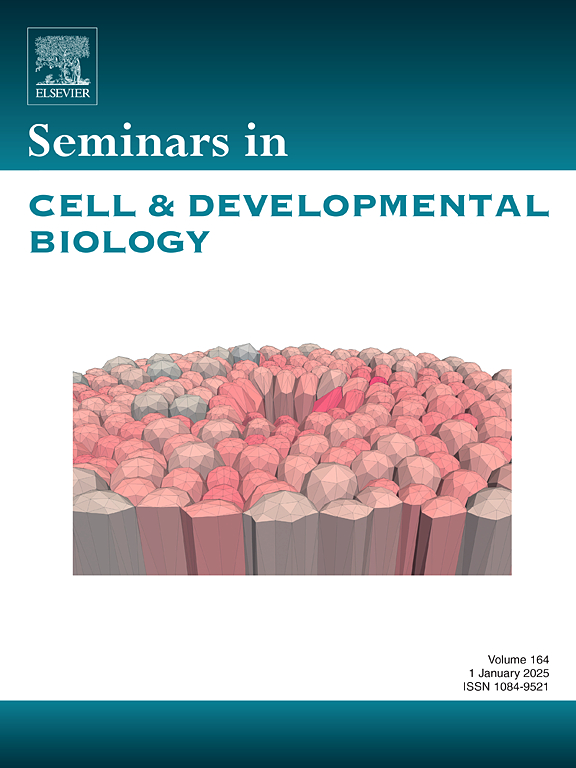The mechanics of shaping organs in plants
IF 6
2区 生物学
Q1 CELL BIOLOGY
引用次数: 0
Abstract
Mechanical forces are instrumental to shaping lifeforms, influencing development from the subcellular scale to the organismal scale. Here, we explore how mechanical forces manifest themselves in plants, driving deformations such as tissue folding, buckling, undulating patterns, and edge curving. These deformations result from modulations in fundamental cellular processes such as cell division, cell expansion, cell wall mechanics, and cytoskeletal organization. Cytoskeletal structure like microtubules, actin filaments respond to mechanical cues by generating localized stress patterns that shape cell structure and function. Mechanical forces can also regulate gene expression and gate mechanosensitive channels to regulate ion fluxes, thereby integrating physical forces with biochemical properties. We draw parallels between plant and animal kingdoms to show how these two kingdoms utilize mechanochemical effects to drive growth and morphogenesis.
植物器官形成的机制
机械力是塑造生命形式的工具,影响着从亚细胞尺度到有机体尺度的发展。在这里,我们探索机械力如何在植物中表现出来,驱动组织折叠、屈曲、波动模式和边缘弯曲等变形。这些变形是由细胞分裂、细胞扩增、细胞壁力学和细胞骨架组织等基本细胞过程的调节引起的。细胞骨架结构如微管、肌动蛋白丝通过产生局部应力模式来响应机械信号,从而塑造细胞结构和功能。机械力还可以调节基因表达,开启机械敏感通道来调节离子通量,从而将物理力与生化特性结合起来。我们在植物和动物王国之间进行了类比,以说明这两个王国如何利用机械化学效应来驱动生长和形态发生。
本文章由计算机程序翻译,如有差异,请以英文原文为准。
求助全文
约1分钟内获得全文
求助全文
来源期刊
CiteScore
15.10
自引率
1.40%
发文量
310
审稿时长
9.1 weeks
期刊介绍:
Seminars in Cell and Developmental Biology is a review journal dedicated to keeping scientists informed of developments in the field of molecular cell and developmental biology, on a topic by topic basis. Each issue is thematic in approach, devoted to an important topic of interest to cell and developmental biologists, focusing on the latest advances and their specific implications.
The aim of each issue is to provide a coordinated, readable, and lively review of a selected area, published rapidly to ensure currency.

 求助内容:
求助内容: 应助结果提醒方式:
应助结果提醒方式:


